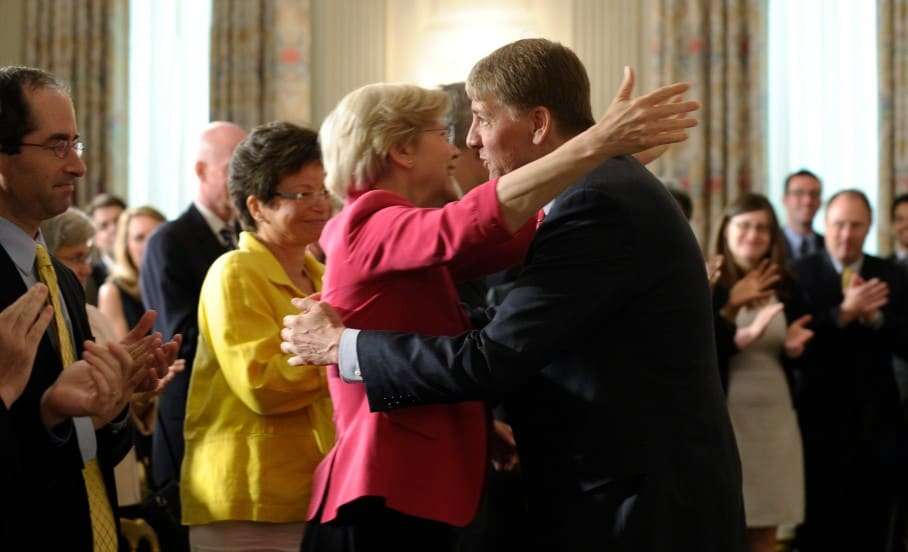The Volokh Conspiracy
Mostly law professors | Sometimes contrarian | Often libertarian | Always independent
D.C. Circuit revives constitutional challenge to Consumer Financial Protection Bureau

A challenge to the constitutionality of the Consumer Financial Protection Bureau and the recess appointment of CFPB head Richard Cordray may proceed, a three-judge panel of the U.S. Court of Appeals for the D.C. Circuit unanimously concluded today in State National Bank of Big Spring v. Lew. Constitutional challenges to the Financial Stability Oversight Council and the federal government's orderly liquidation authority under the Dodd-Frank financial reform law will have to wait, however.
State National Bank and a series of private and state plaintiffs challenged the constitutionality of the CFPB on multiple grounds. Among other things, the plaintiffs argue that the composition of the CFPB as an independent agency controlled by a single agency head (as opposed to a multi-member commission, as is the norm with independent agencies) lack requisite executive branch oversight and is unconstitutional. They also argued that Cordray's intra-session recess appointment was unconstitutional under Noel Canning.
The district court concluded that none of the plaintiffs had standing to bring these claims. The D.C. Circuit, in an opinion by Judge Brett Kavanaugh (joined by judges Rogers and Pillard) disagreed, finding the bank had standing to bring both claims and that both claims were ripe as well. The case will now return to the district court for consideration of the merits. This is bad news for the government as the case against the Cordray appointment seems particularly strong, and that the other challenge to the CFPB's composition raises serious separation of power issues (particularly given the Supreme Court's decision in Free Enterprise Fund v. PCAOB).
The plaintiffs had raised additional claims - challenging the FSOC and the government's orderly resolution authority - but these will have to wait, as the D.C. Circuit agreed with the district court that none of the plaintiffs had standing to raise these claims and that challenges to the government's orderly liquidation authority are not ripe at this time. I would expect to see other plaintiffs seek to revise these claims (or their equivalent) at a later date.


Show Comments (0)